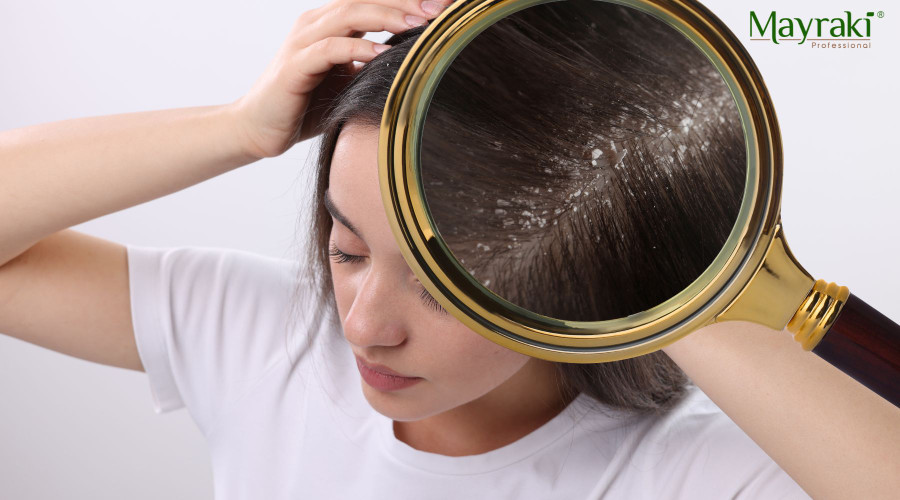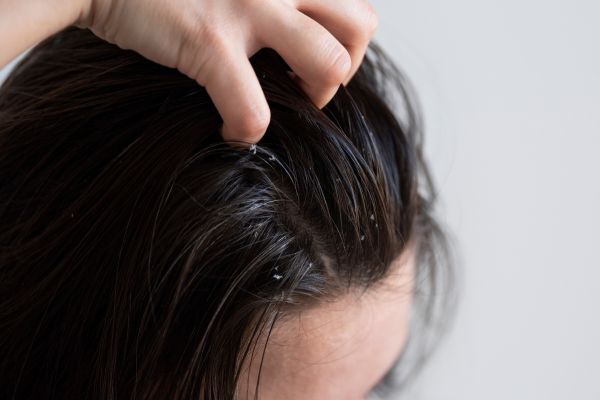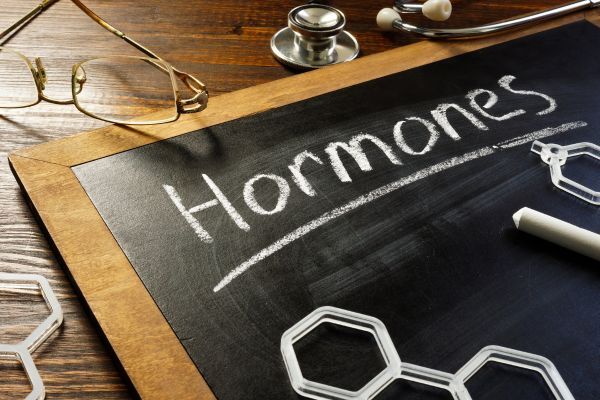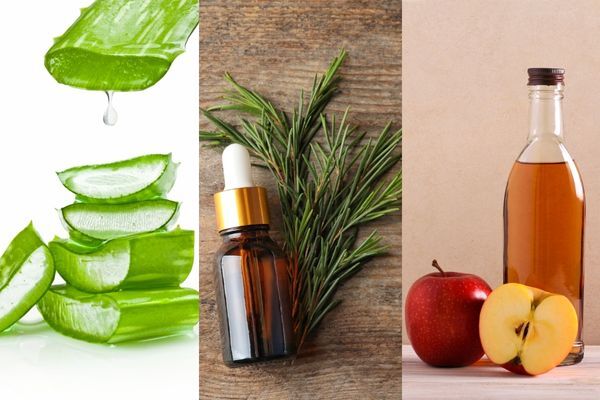How Hormonal Changes Trigger Dandruff: What You Need to Know
Apr 16, 2025 | By Maria

Dandruff is a common issue that a lot of people deal with at some point in their lives. The scalp experiences flaking and can be accompanied by irritation, itching, redness, dryness, and excess sebum. While a common issue, dandruff can be annoying and uncomfortable to deal with. One of the biggest causes of dandruff can be hormonal changes. The good news is, however, it’s fairly easy to address it and there are a lot of solutions.
What are the Causes of Dandruff?

Excess Oil Production on the Scalp
Excess oil production on the scalp can create an environment that promotes the growth of fungi like Malassezia, which is linked to dandruff. When the sebaceous glands overproduce oil, it can cause the scalp to become oily, leading to flaking and itching. This can also produce heavy buildup that causes irritation and dandruff.
Overgrowth of Malassezia Fungus
Malassezia is a fungus that naturally resides on the scalp. However, when there is an excess of oil on the scalp, it creates an ideal environment for this fungus to grow. This overgrowth can cause irritation and lead to dandruff formation, along with accompanying itching.
Changes in the pH Balance of the Scalp
Hormonal imbalances can affect the pH balance of the scalp. A disrupted pH balance can lead to irritation and discomfort on the scalp, causing the skin to flake and itch. Maintaining a balanced pH is key to preventing dandruff.
Itching and Inflammation of the Skin
Itching and inflammation are common symptoms of dandruff. Hormonal imbalances, such as those occurring during puberty, menstruation, or menopause, can cause the scalp to become more sensitive. This sensitivity often results in irritation and an inflammatory response, which may worsen dandruff.
Hormonal Imbalances Causing Excessively Dry or Oily Scalp
Hormonal fluctuations can lead to changes in oil production on the scalp. This can result in either an excessively oily or dry scalp, both of which can contribute to the development of dandruff. Hormones such as androgens, estrogen, and thyroid hormones play a key role in regulating sebum production, and any imbalance can trigger dandruff. Imbalances can also trigger an overproduction of DHT or dihydrotestosterone, a male hormone that causes hair loss if there is too much.
The Role of Hormones in Scalp Health
Hormones are crucial in regulating sebum production on the scalp. When there are fluctuations in hormones, whether due to puberty, menstrual cycles, pregnancy, or menopause, they can affect the oiliness or dryness of the scalp.
For example, androgens stimulate the sebaceous glands to produce oil, while estrogen and progesterone help keep this production in balance. When estrogen levels drop, such as during menopause, the scalp may become dry and irritated. On the other hand, an excess of testosterone can increase oil production, leading to an oily scalp that may trigger dandruff.
How Hormonal Imbalance Leads to Dandruff
Excess Oil Production
Hormonal fluctuations can increase the production of sebum, leading to an oily scalp. This excess oil creates an environment conducive to the overgrowth of Malassezia fungus, which results in dandruff. The overproduction of oil can cause flakes, itching, and inflammation.
Malassezia Fungus Infection
Malassezia is a fungus that is naturally found on the scalp. However, an oily scalp can lead to an overgrowth of this fungus, which feeds on the excess sebum. This overgrowth results in dandruff and associated symptoms like itching and redness.
Changes in the pH Balance of the Scalp
Hormonal changes can disrupt the pH balance of the scalp. When the scalp becomes too acidic or too alkaline, it can lead to irritation, causing itching, inflammation, and flaking. Maintaining a healthy pH level is essential in preventing dandruff.
When Are Hormonal Dandruff Triggers Most Common?

Puberty
During puberty, hormone levels, particularly androgens, rise. These hormones stimulate the sebaceous glands to produce more oil, which can lead to an oily scalp and dandruff.
Menstrual Cycle
Hormonal fluctuations before and after menstruation can lead to increased oil production, triggering dandruff. Changes in estrogen and progesterone levels during the menstrual cycle can also affect the scalp's health.
Pregnancy and Postpartum
During pregnancy and the postpartum period, fluctuating hormone levels can cause the scalp to become either excessively oily or dry. This imbalance can lead to dandruff and irritation.
Menopause
As women approach menopause, estrogen levels decrease, which can cause the scalp to become dry, irritated, and more prone to dandruff. This drop in estrogen can also lead to scalp inflammation and discomfort.
PCOS and Thyroid Disorders
Conditions such as polycystic ovary syndrome (PCOS) and thyroid disorders can cause hormonal imbalances that affect the scalp. These imbalances may result in dandruff due to increased oil production or changes in scalp sensitivity.
How to Prevent and Manage Hormonal Dandruff

Choose the Right Anti-Dandruff Shampoo
To manage hormonal dandruff, choose an anti-dandruff shampoo containing ingredients like salicylic acid, ketoconazole, zinc pyrithione, or selenium sulfide. These ingredients help reduce dandruff, control scalp fungus, and maintain scalp health. Avoid shampoos with harsh chemicals that can irritate the scalp.
Follow a Healthy Lifestyle for Hormonal Balance
Maintaining a balanced diet rich in omega-3 fatty acids, zinc, and probiotics can help regulate hormone levels. Additionally, managing stress, exercising regularly, and getting adequate sleep can support hormonal balance and reduce dandruff.
Maintain a Healthy Scalp
Wash your hair regularly to prevent oil buildup, use scalp exfoliators to remove dead skin cells and excess oil from the scalp, and avoid excessive use of hair styling products, which can clog pores and contribute to dandruff.
Try Natural Remedies

- Tea Tree Oil – Known for its antifungal properties, tea tree oil can help combat dandruff by reducing Malassezia growth.
- Apple Cider Vinegar – Helps restore the pH balance of the scalp and reduces irritation.
- Aloe Vera – Known for its soothing properties, aloe vera can calm inflammation and itching on the scalp.
When to Consult a Doctor
If dandruff persists despite treatment, or if you experience severe itching, inflammation, or sores on the scalp, it is important to consult a dermatologist or endocrinologist. They can help assess potential hormonal imbalances or other underlying conditions affecting scalp health.
A Careful Balance
Hormonal imbalances play a significant role in scalp health and can trigger dandruff. With the right hair care routine, proper products, and a healthy lifestyle, you can manage and prevent dandruff caused by hormonal fluctuations. Taking steps to restore hormonal balance and maintain a healthy scalp can help alleviate dandruff and improve overall scalp health. However, remember that hormonal fluctuations are completely normal and will happen at several points in life. Don’t panic and work with your healthcare professionals to get back on track.




